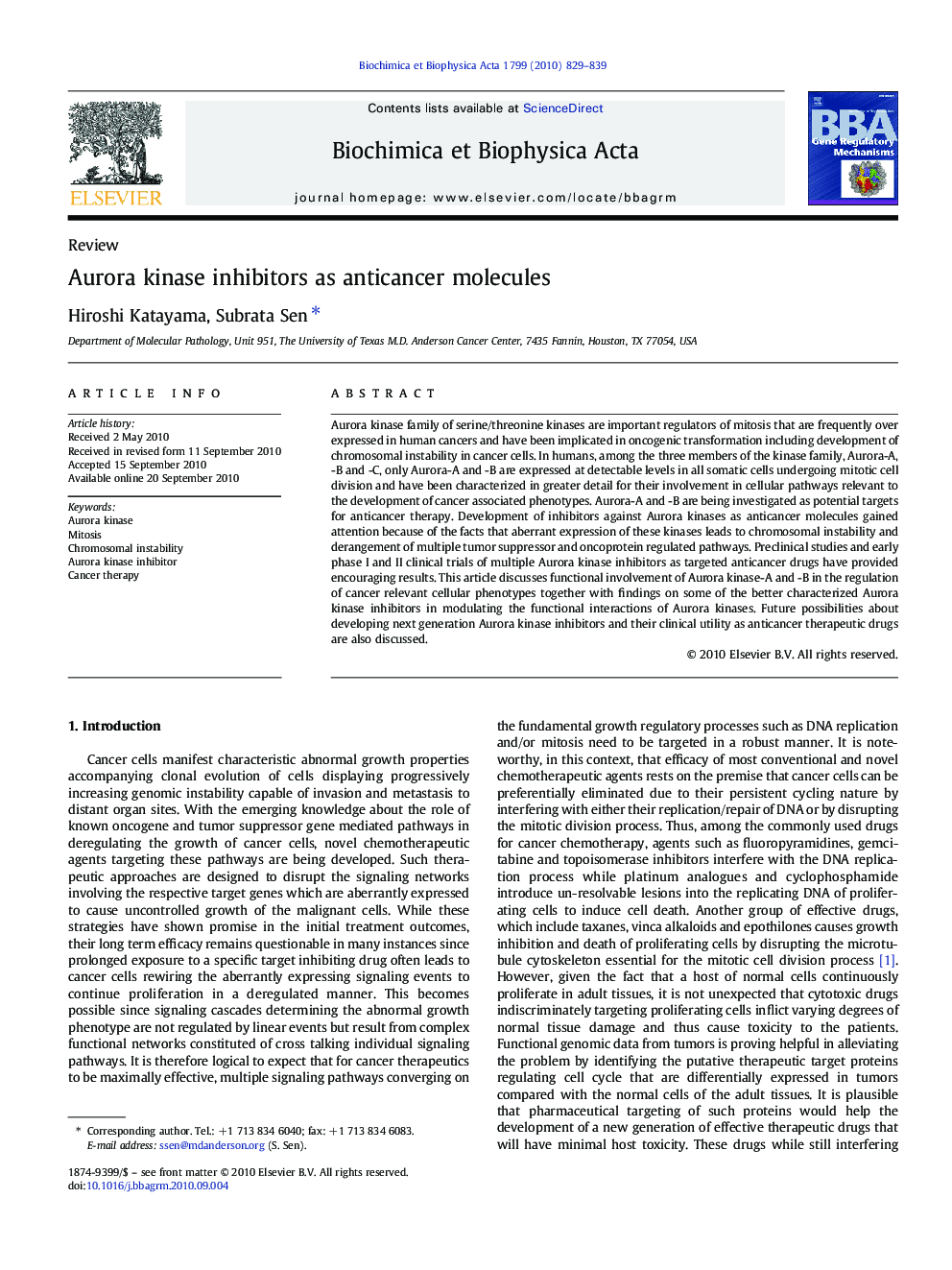| Article ID | Journal | Published Year | Pages | File Type |
|---|---|---|---|---|
| 1946741 | Biochimica et Biophysica Acta (BBA) - Gene Regulatory Mechanisms | 2010 | 11 Pages |
Aurora kinase family of serine/threonine kinases are important regulators of mitosis that are frequently over expressed in human cancers and have been implicated in oncogenic transformation including development of chromosomal instability in cancer cells. In humans, among the three members of the kinase family, Aurora-A, -B and -C, only Aurora-A and -B are expressed at detectable levels in all somatic cells undergoing mitotic cell division and have been characterized in greater detail for their involvement in cellular pathways relevant to the development of cancer associated phenotypes. Aurora-A and -B are being investigated as potential targets for anticancer therapy. Development of inhibitors against Aurora kinases as anticancer molecules gained attention because of the facts that aberrant expression of these kinases leads to chromosomal instability and derangement of multiple tumor suppressor and oncoprotein regulated pathways. Preclinical studies and early phase I and II clinical trials of multiple Aurora kinase inhibitors as targeted anticancer drugs have provided encouraging results. This article discusses functional involvement of Aurora kinase-A and -B in the regulation of cancer relevant cellular phenotypes together with findings on some of the better characterized Aurora kinase inhibitors in modulating the functional interactions of Aurora kinases. Future possibilities about developing next generation Aurora kinase inhibitors and their clinical utility as anticancer therapeutic drugs are also discussed.
Research Highlights► Aurora kinase family members are over expressed in many human cancers. ► Aurora kinase-A and -B have been implicated in tumorigenic transformation of cells. ► Aurora kinase inhibitors induce apoptosis of cancer cells and inhibition of tumor growth. ► Aurora kinase inhibitors are currently undergoing clinical trials for cancer therapy.
